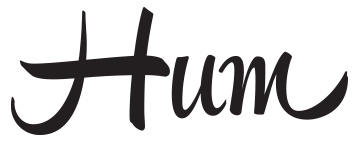Humanities 101 Community Programme (Hum) is part of an international movement of similar courses which began in 1998, and it also sits in the context of long-standing alternative education projects, working class and women’s education, and more. Hum is based both at UBC and on the Downtown Eastside, a place which houses, or finds homeless, the lowest income citizens in the country. The Downtown Eastside plays a large role in the minds of Canadians, primarily through negative images and tired stereotypes that play over and over in the media. Hum students and alumni, mainly Downtown Eastside residents, counter these views in countless inspiring ways.
Hum—the first of its kind in Canada—was inspired by the “Clemente Course” initiated in New York City’s Lower Eastside by the American journalist Earl Shorris. In 1998, UBC students/staff Allison Dunnet and Am Johal read Shorris’ article in Harper’s Magazine, wanted to start such a Programme at UBC and received funding from the Dean of Art’s Office to do so. Their intention was “to offer non-vocational training that empowers students to use critical thinking in everyday life and inspire a passion for lifelong learning.” While they found an abundance of skills-based programmes in the Downtown Eastside and surrounding areas, they found none which focused on the Arts and Humanities.
Shorris had himself been inspired by “an inmate in a women’s prison” who told him that that poor need “a moral alternative to the street” in order to rise above their circumstances. Coming from a journalistic and academic background, Shorris believed that the lives of the rich and the lives of the poor, although different in many significant material and financial ways, diverge because one has access to “the radical character of the humanities” while the other does not. Shorris’ vision has generated about 60 Clemente-type Courses in seven countries, and counting.
While connected, UBC’s Hum differs in some important ways from Clemente Courses: the ‘great books’ are not privileged over contemporary works and the courses do not focus on the classics and their ‘civilizing’ effect but on relevant interdisciplinary critical and creative thinking practices; at the same time, the Humanities are both appreciated and seen as implicated; and, most importantly, Hum students’ ongoing passion for lifelong learning, informed analysis of society, volunteer community involvement and political activism displaces the idea that what’s on offer is “Riches for the Poor”, the title of Shorris’ book about the Clemente Course. Hum recognizes that many of our students are engaged in political lives before they take the courses, and recognizes the value of what they bring with them and generate together.
Hum has a strong commitment to being responsive to the needs and desires of its communities in Downtown Eastside areas and at UBC. It is guided, in all aspects, by a Steering Committee whose members are all students and alumni of the Programme, and whose knowledge of the Programme is highly valued. Over its seventeen-year lifespan, it has gained its own flavour, and students and alumni initiate their own Public Programmes which take Hum in new and welcome directions.
At the first national meeting of all Canadian Hum-type Programmes which took place in Calgary in October 2008, concerns surfaced about how closely we are following Shorris’ Clemente Course criteria, and it was recognized that each Canadian Programme is different from the others—in course content, course length, Programme funding, relations with students, alumni and volunteers, etc.—that each is suitable for their specific context, and that none of the Canadian Programmes follow all of the Clemente criteria; in accordance, the Canadian Programmes are now united as ‘Radical Humanities’ (a provisional name), and not as Clemente Courses.
